An integrated approach.
Led by Professor Tony Heagerty, the School of Medical Sciences at The University of Manchester is the largest provider of healthcare graduates to the NHS in north-west England, and a leader in integrated medical sciences research. We aim to be a world-leading integrated medical sciences research and teaching school.
We host the largest medical school in the UK with around 3,100 undergraduates, 1,200 postgraduates and 2,000 staff. We also have the highest-ranking dental school in the north of England.
Our researchers undertake internationally recognised research spanning bench-side research science in areas from cardiology and developmental biology to clinical trials.
Notable alumni include Dame Sally Davies, the former Chief Medical Officer for England, and Nobel Prize winner Sir John Sulston.
What makes us unique?
We are home to two large five-year undergraduate degrees, MBChB Medicine and BDS Dentistry, which can be entered via a foundation year. Our MBChB Medicine (Graduate Entry) course had its first intake of students in 2024, and there will be an integrated degree course for every medical student available from 2026.
We also offer a considerable range of postgraduate courses. Medical and dental teaching takes place on campus and in hospitals in Manchester University NHS Foundation Trust. This includes the Manchester University Dental Hospital and The Christie, as well as Royal Preston Hospital (Lancashire Teaching Hospitals NHS Foundation Trust).
Our reach goes beyond the UK. We have international curriculum licensing agreements in Egypt and the Middle East, alongside a long-standing partnership with the International Medical School.
Future plans
We will further support our international teaching through a £2 million dental hub facility to house 16 dental chairs for training our postgraduate and undergraduate students.
We are also improving our estate for our students, with a refurbishment of external lecture theatre space in Stopford. We are refurbishing our current Problem Based Learning (PBL) teaching rooms as we transition to Team Based Learning (TBL) teaching for the MBChB Medicine and, eventually, some of our BDS Dentistry courses.
Our annual research income is around £30 million. Strong funding links with major UK charities such as The British Heart Foundation and Cancer Research UK support our research, as well as UK Research and Innovation (UKRI).
We have one of the University's Research Beacons in Cancer Sciences, represented through our Division of Cancer Sciences and through our partnership with the Manchester Cancer Research Centre.
To achieve our aim of becoming a world-leading integrated medical sciences research and teaching school, we have developed five priorities underpinned by operational objectives:
- Welcome, develop and recognise our staff.
- Be the first choice for students.
- Increase the diversification of graduate opportunities.
- Undertake research that makes a societal difference.
- Be financially sustainable, with the ability to reinvest.
If you'd like to know more, get in touch.
General enquiries
Please email us at: hosea.sms@manchester.ac.uk
Our Divisions
Division of Cancer Sciences
- About us
- Research areas
- Education and training
- Key publications
- Our impact
- Contact us
Patient-focused, research-guided and collaborative approaches to improve cancer outcomes.
We have over 40 research teams with interests spanning discovery science, translational research and clinical studies.
Many of our teams are based at sites such as the Oglesby Cancer Research Building and the new Paterson building, which are next to The Christie Hospital and its Proton Beam Therapy Centre. Other teams work from the University's main campus, including St Mary's Hospital, enabling close interactions with cell biology and biomedical researchers.
The Division is a key component of the Manchester Cancer Research Centre (MCRC), and has close strategic partnerships with the CRUK Manchester Institute, The Christie Hospital and Manchester University NHS Foundation Trust. The Division is a major contributor to the University's Cancer Research Beacon and the wider Greater Manchester cancer ecosystem, helping drive a broader, integrated 'One Manchester' vision.
Division leads:
- Head of Division: Professor Stephen Taylor
- Deputy Head of Division:Dr Cathy Tournier
Read more about the research in our Division in Research Explorer:
- Lung cancer
- Melanoma
- Haematological cancers
- Colon cancer and peritoneal metastasis
- Hepatobiliary and pancreatic cancer
- Breast cancer
- Gynaecological cancers, including ovarian and endometrial
- Prostate, renal and other genitourinary cancers
- Neuro-oncology, focusing on glioblastoma
- Immuno-oncology, including T-cell therapy
- Experimental cancer medicine
- Radiotherapy-related research
- Protons research
- Biomarker development
- Early detection and prevention
- Imaging and AI
- Multi-omics, including cancer genomics and proteomics
- Chromosome instability
- Cell signalling and apoptosis
- Molecular pathology
To help deliver the next generation of oncology researchers, the Division hosts a large number of postgraduate trainees, including clinical and non-clinical PhD students, plus postdoctoral scientists and academic clinical lecturers.
We make a large contribution to the University's undergraduate teaching portfolio, and run four master's courses, including our flagship MSc in Transformative Oncology. The University's goal of social responsibility is embedded in Divisional activities, not just in terms of public and patient engagement, but also by integrating equality, diversity and inclusivity initiatives into our research and teaching, as well as our daily working practices.
The Division has on ongoing recruitment drive to attract junior faculty, who we aim to set up for success with support packages and mentoring. Indeed, a cornerstone of our vision is a blossoming junior faculty, with a growing array of clinical/non-clinical partnerships.
This allows staff to play to their individual strengths while inspiring the next generation of oncologists and delivering high-impact research and innovative teaching across the discovery, translational and clinical spectrum, addressing both Manchester-specific and global oncology issues.
- Apoptotic priming is defined by the dynamic exchange of Bcl-2 proteins between mitochondria and cytosol.
Cell Death & Differentiation, 2022. - Insulin protects acinar cells during pancreatitis by preserving glycolytic ATP supply to calcium pumps.
Nature Communications, 2021. - Hypofractionated radiotherapy in locally advanced bladder cancer: an individual patient data meta-analysis of the BC2001 and BCON trials.
Lancet Oncology, 2021. - Four-Year Survival With Durvalumab After Chemoradiotherapy in Stage III NSCLC-an Update From the PACIFIC Trial.
Journal of Thoracic Oncology, 2021. - Dose escalation and expansion cohorts in patients with advanced breast cancer in a Phase I study of the CDK7-inhibitor samuraciclib.
Nature Communications, 2023. - Comprehensive molecular profiling of sarcomas in adolescent and young adult patients: results of the EORTC SPECT-AYA international proof-of-concept study.
European Journal of Cancer, 2023. - The need for consensus on delineation and dose constraints of dentofacial structures in paediatric radiotherapy: Outcomes of a SIOP Europe survey.
Clinical and Translational Radiation Oncology, 2023. - Whole-genome analysis of Nigerian patients with breast cancer reveals ethnic-driven somatic evolution and distinct genomic subtypes.
Nature Communications, 2021. - Chronic myelomonocytic leukaemia stem cell transcriptomes anticipate disease morphology and outcome.
EBioMedicine, 2020. - Quantitative SWATH-based proteomic profiling of urine for the identification of endometrial cancer biomarkers in symptomatic women.
British Journal of Cancer, 2023.
See all research outputs from the Division of Cancer Sciences.
- Radiotherapy research changes standard clinical practice and improves survival for patients with small-cell lung cancer. Corinne Faivre-Finn, Fiona Blackhall, Paul Lorigan
- New targeted therapies in non-small cell lung cancer improve patient outcomes. Fiona Blackhall, Malcolm Ranson
- Improving survival and reducing treatment damage in Hodgkin lymphoma. John Radford, Tim Illidge
- Access to more effective therapies in Non-Hodgkin Lymphoma. Tim Illidge, John Radford, Jamie Honeychurch
- Commercial development and patient benefit of adoptive cell therapy (ACT) for cancer. Fiona Thistlethwaite, Robert Hawkins, Peter Stern, David Gilham
- Improving treatment and prevention of cervical cancer in Kenya. Ian Hampson, Lynne Hampson
- Establishing the UK's first high-energy proton beam therapy service at The Christie Hospital Manchester and University College London Hospital. Hywel Owen, Robert Appleby, Ranald Mackay, Karen Kirkby, Roger Barlow.
- Email: hodcs@manchester.ac.uk
- Follow us on X (formerly Twitter): @UoM_DCS
- See all key contacts
Changing lives and national policy
Professor Emma Crosbie discusses research into the link between Lynch syndrome and womb cancer, and how this has changed NICE guidance on testing for the syndrome.
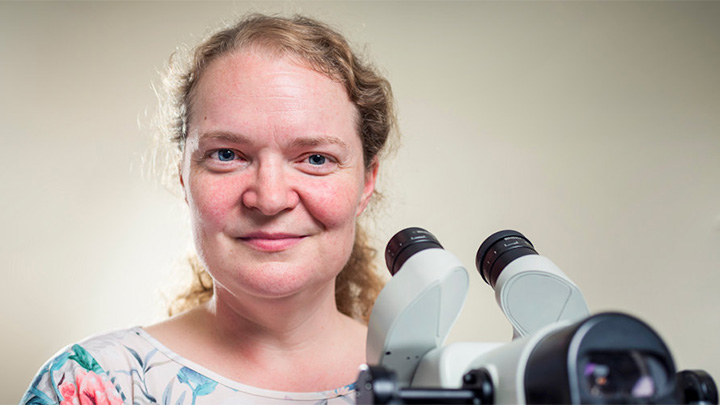
Taking discovery research up a gear
Professor Stephen Taylor explains how a combination of high-quality basic research, translational science, drug discovery and the 'Manchester way' of doing things are yielding results.
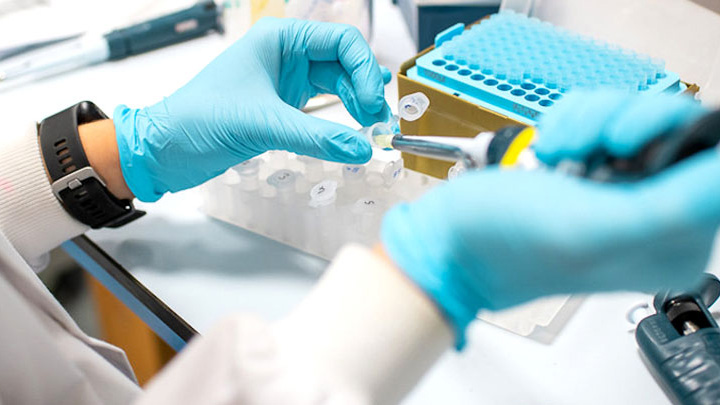
Division of Cardiovascular Sciences
- About us
- Research areas
- Key publications
- Our impact
- Contact us
Advancing our understanding of cardiovascular disease to transform patients' lives.
We combine clinical, translational and discovery science in our innovative, interdisciplinary and international collaborative research to reduce the burden of heart and circulatory disease.
Our research into heart failure involves defining pathophysiological mechanisms and the interplay between obesity, ageing, co-morbidities and environmental factors. This helps us to identify novel biomarkers, identify and evaluate novel therapeutic approaches, and develop precision risk stratification strategies for patient management.
Using multidisciplinary approaches, we are discovering novel mechanisms underlying stroke, vascular dementia and blood vessel diseases to identify and develop translatable therapeutic targets. We are also identifying factors that predict adverse outcomes to improve early detection, and improving patient outcomes and clinical care through novel rehabilitation regimens.
In cardiovascular genetics and genomics, we are taking forward our genetic discoveries in hypertension, congenital heart disease and inherited cardiac conditions using functional genomics and deep longitudinal phenotyping. This will help us to better understand phenotypic complexity and identify novel drug/drug repurposing opportunities.
Division leads:
- Head of Division: Professor Elizabeth Cartwright
- Deputy Head of Division: Dr Nick Ashton
Read more about the research in our Division in Research Explorer:
- Heart failure and cardiac pathophysiology
- Cardiovascular genomics and development
- Hypertension and its consequences
- Small and large vessel disease
- Stroke and vascular dementia
- Impact of obesity and diabetes on cardiovascular health
- Genetics of hypertension, congenital heart disease and inherited cardiac conditions
- Semaglutide in patients with heart failure with preserved ejection fraction and obesity.
The New England Journal of Medicine, 2023. - Uncoupling of Ca2+ sparks from BK channels in cerebral arteries underlies hypoperfusion in hypertension-induced vascular dementia.
Proceedings of the National Academy of Sciences of the United States of America, 2023. - Early mobilisation is associated with lower subacute blood pressure and variability in ICH: A retrospective cohort study.
Journal of Stroke and Cerebrovascular Diseases, 2023. - Effects of developmental hypoxia on the vertebrate cardiovascular system.
Physiology, 2023. - Myocardial involvement after hospitalization for COVID-19 complicated by troponin elevation: a prospective, multicenter, observational study.
Circulation, 2023. - Perivascular adipose tissue anticontractile function is mediated by both endothelial and neuronal nitric oxide synthase isoforms.
Journal of Vascular Research, 2022. - Characterization of the mechanism by which a nonsense variant in RYR2 leads to disordered calcium handling.
Physiological Reports, 2022. - Investigation of copy number variation in South African patients with congenital heart defects.
Circulation: Genomic and Precision Medicine, 2023. - Paracrine signal emanating from stressed cardiomyocytes aggravates inflammatory microenvironment in diabetic cardiomyopathy.
iScience, 2022. - PDE5 inhibition suppresses ventricular arrhythmias by reducing SR Ca2+ content.
Circulation Research, 2021. - Uncovering genetic mechanisms of hypertension through multi-omic analysis of the kidney.
Nature Genetics, 2021.
See all research outputs from the Division of Cardiovascular Sciences.
The impact and breadth of our cardiovascular research, conducted with researchers from numerous Divisions across the University, is illustrated by the cases highlighted on our Heart and Circulatory Research webpage.
Rapid testing for acute coronary syndromes: faster treatment, lower hospital admissions, cost-efficient
Patients arriving at emergency departments with chest pain traditionally required emergency hospital admission for testing, which took up to three days to complete. Research led by Prof Rick Body has resulted in the development of three new methods of investigating chest pain using high-sensitivity cardiac troponin assays.
These tests detect troponin at much lower levels than previous tests allowed, meaning results are available quicker, thereby allowing quicker access to treatment where necessary and a reduction in unnecessary hospital stays.
Improving care for intracerebral haemorrhage (ICH) patients
Intracerebral haemorrhage (ICH), where bleeding occurs within the brain tissue, is a life-threatening type of stroke affecting over 10,000 people in the UK each year.
To improve the quality of care for these patients, the ABC care bundle for ICH was developed based on research conducted by Dr Adrian Parry-Jones. This care bundle has reduced 30-day ICH mortality by 33% and is recommended by NHS England's Rightcare Stroke Toolkit.
Increasing understanding of congenital heart disease and research capacity building in Africa
Congenital heart disease (CHD) is a leading cause of childhood mortality and makes up one-third of all congenital birth defects globally. The prognosis for a child born with CHD in a low and lower-middle income country (LLMICs) is worse than in a high-income country.
Manchester and Cape Town researchers are collaborating to address knowledge gaps about CHD in African populations while also building research capacity and expertise in the Cape Town region.
- Email: hod.cvs@manchester.ac.uk
- Follow us on X (formerly Twitter): @DCVS_UoM
- See all key contacts
Rapid testing for acute coronary syndromes
Our work in the emergency department has helped develop ultra-high sensitivity blood tests and rapid decision-making tools for patients suspected of having had a heart attack, allowing for quicker treatment, improved recovery and earlier discharge.
Read the story : Rapid testing for acute coronary syndromes.
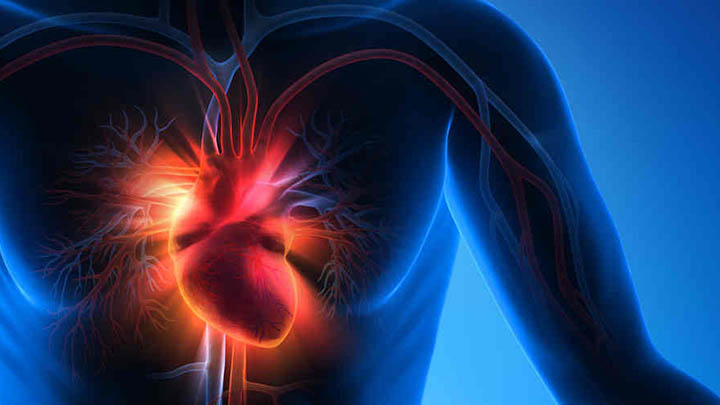
Improving patient adherence to high blood pressure medication
We developed a urine test to determine if patients with high blood pressure are taking their medicines, so healthcare professionals can work more effectively with them and reduce complications from high blood pressure later in life.
Read the story : Improving patient adherence to high blood pressure medication.

Investigating the impact of polyaromatic hydrocarbon pollutants on heart function
Air pollution is associated with heart attacks, strokes and irregular heart rhythms, particularly in people already at risk for these conditions. We aim to learn more about the effects of a specific type of pollutants on our health.
Read the story : Investigating the impact of polyaromatic hydrocarbon pollutants on heart function.

Division of Dentistry
- About us
- Research areas
- Education and training
- Key publications
- Our impact
- Contact us
Undertaking world-leading research to improve dental care and reduce oral health inequalities.
Teaching, research, clinical and support staff in the Division of Dentistry play a role in ensuring our undergraduate and postgraduate students receive an outstanding teaching and learning experience, underpinned by world-class research.
We train undergraduate dentists and dental hygienists/therapists, as well as offering a range of postgraduate taught and research courses. Our teaching facilities will be enhanced further with the development of a new Dental Hub, which will provide additional chairs and amenities.
We are proud of the fact that our research, when assessed as part of the Research Excellence Framework 2021’s Unit of Assessment 3 (encompassing Allied Health Professions, Dentistry, Nursing and Pharmacy), was placed 2nd in the UK. Overall, 96% of our research was assessed as internationally excellent or world-leading.
The Division is linked to Cochrane Oral Health (COH) who work with global partners to produce research that has underpinned international guideline development and helped shape policy, changing clinical practice in the process.
The Division collaborates with Colgate-Palmolive, strengthening the relationship between industry and academia. Over its 50-year history, the unit has accomplished major scientific advances in dental public health, epidemiology, and diagnostic sciences.
Division leads:
- Head of Division: Professor Nick Silikas
- Deputy Head of Division: Professor Julian Yates
Read more about the research in our Division in Research Explorer:
- Basic dental science
- Applied health research
Postgraduate courses
To develop and support the next generation of dental specialists, the Division trains postgraduate students across a range of specialties.
These include paediatric dentistry, orthodontics, periodontology, oral and maxillofacial surgery, endodontics, and fixed and removable prosthodontics. We offer both 3-year full-time clinical master's courses and 4-year full-time clinical PhD programmes.
Students are taught by a range of clinical and academic staff including consultants and specialists, and work under all sedation modalities including local analgesia, conscious sedation and general anaesthesia. They gain experience in a range of environments including the University Dental Hospital of Manchester, district general hospitals and the Royal Manchester Children 's Hospital.
Students undertake high quality research projects under the supervision of academic and clinical staff. We encourage and mentor students to attend and present at regional, national and international conferences.
Our MSc (Clin) programmes are world renowned, and confer eligibility to undertake the relevant Royal College of Surgeons examination.
International links
The Division of Dentistry is proud to extend our impact beyond the local community. We are committed to excellence in education, research and service.
Our international partnerships and initiatives are instrumental in advancing dental care and promoting oral health worldwide. We have established collaborations with leading dental schools around the world, such as the Henry Goldman School of Dental Medicine, Boston University, USA and the Faculty of Dental Medicine, Universitas Airlangga, Indonesia.
These agreements give our students unique opportunities to learn about oral health on a global scale, and start building their international network. Our students take part in international online learning platforms, exchange visits and research opportunities.
The Division also has a joint BDS degree programme with Alexandria Dental School, Egypt and a licensed degree with Mansoura Dental School, Egypt.
- Deliberative Improvement of Oral Care Quality: The Horizon Europe DELIVER Project
JDR Clinical and Translational Research, 2023. - International consensus on a dental antibiotic stewardship core outcome set
International Dental Journal, 2023. - Quantitative nano-mechanical mapping AFM-based method for elastic modulus and surface roughness measurements of model polymer infiltrated ceramics
Dental Materials, 2022. - Enamel Caries Detection and Diagnosis: An Analysis of Systematic Reviews
Journal of Dental Research, 2022. - Revisiting the embryogenesis of lip and palate development
Oral Diseases, 2022. - Malignant Transformation Rate of Oral Submucous Fibrosis: A Systematic Review and Meta-Analysis
Journal of Clinical Medicine, 2022. - Evaluation of water fluoridation scheme in Cumbria: the CATFISH prospective longitudinal cohort study
National Institute for Health and Care Research, 2022. - An evaluation of a referral management and triage system for oral surgery referrals from primary care dentists: a mixed-methods study.
NIHR Journals Library, 2018. - Timing of Primary Surgery for Cleft Palate.
The New England Journal of Medicine, 2023. - Virtual and augmented reality in dental education: The good, the bad and the better
European Journal of Dental Education, 2022. - Fighting viruses with materials science: Prospects for antivirus surfaces, drug delivery systems and artificial intelligence
Dental Materials, 2021.
Cochrane Oral Health Group leads the international evidence base for oral health: Antibiotics for the prevention of bacterial endocarditis
Lee Hooper (Participant), Richard Oliver (Participant) & Helen Worthington (Participant) Impact: Health impacts
Researchers at The University of Manchester (UoM) evaluated the evidence for this practice by undertaking a high quality systematic review (initially published 2004). The review has informed multiple international guidelines. Publication of the NICE guideline led to a fall in the unnecessary prescription of antibiotics from 10,727 to 2,292 per month, an approximate annual saving of £174,580.
- Encouraging and enabling dental teams to participate in efforts to reduce Antibiotic Resistance (ABR) and Antimicrobial resistance (AMR)
Wendy Thompson (Corresponding participant) Impact: Health and wellbeing
- Optimising patient care for the prevention of dental caries
Anne-Marie Glenny (Participant), Helen Worthington (Participant), Janet Clarkson (Participant) & Tanya Walsh (Participant) Impact: Health and wellbeing, Society and culture, Attitudes and behaviours, Awareness and understanding
- Highlighting the increase in antibiotic prescribing by dental practices during Covid-19 to encourage dental antibiotic stewardship and improvements in service delivery
Wendy Thompson (Corresponding participant) Impact: Health and wellbeing, Awareness and understanding, Attitudes and behaviours, Policy
- Promoting oral health in medically compromised patients to improve patient outcomes
Anne-Marie Glenny (Participant), Helen Worthington (Participant), Janet Clarkson (Participant), Philip Riley (Participant) & Martin Mccabe (Participant) Impact: Health and wellbeing
- Transforming referral management in oral surgery
Iain Pretty (Participant), Tanya Walsh (Participant), Martin Tickle (Participant), Caroline Sanders (Participant), Paul Coulthard (Participant), Joanna Goldthorpe (Participant), Harry Hill (Participant) & Stephen Birch (Participant) Impact: Technological impacts, Health and wellbeing, Economic
- Email: HOD.DENT@manchester.ac.uk
- Follow us on X (formerly Twitter): @Dentistry_UoM
- See all key contacts
Dental care for refugees and other minority groups
Dr Joanne Cunliffe is working with a team of student volunteers to deliver dental care to refugees and other minority groups in Manchester.
Read the story : Dental care for refugees and other minority groups.
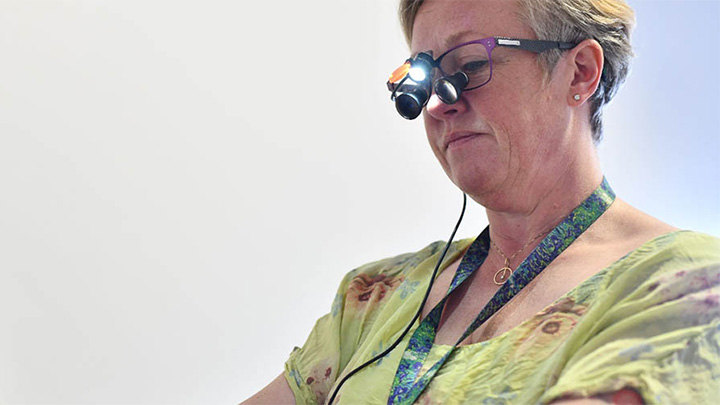
Making a difference through dentistry
Dr Senathirajah ‘Raj’ Ariyaratnam, uses his experience to train Sri Lanka’s dentists and address dental health inequalities closer to home.
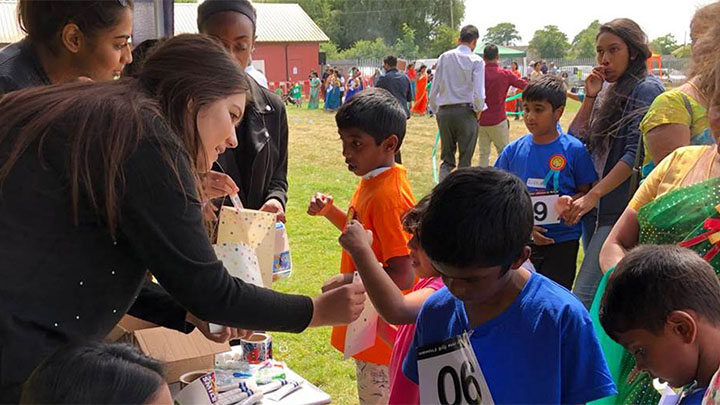
Division of Developmental Biology and Medicine
- About us
- Research areas
- Key publications
- Our impact
- Contact us
Translating fundamental biology into an understanding of the mechanisms of life and evolution to translate these findings into better human health and life.
The Division of Developmental Biology and Medicine includes scientists and clinical scientists studying multiple different aspects of developmental biology, from basic cell behaviour to clinical reproductive and obstetric medicine.
We have a diverse group of developmental biology academic-led research groups, and the Maternal Fetal Health group, which comprises research biologists and clinicians focused on placenta, pregnancy, early development and embryology.
The Division has an internationally leading academic and clinical reputation. We work in partnership with the NHS and several charities, and are keen for all staff members to engage with the University of Manchester's social responsibility agenda, as this recognises the important links we have with those directly affected by our research.
Division leads:
- Head of Division: Dr Matthew Ronshaugen
- Deputy Head of Division: Dr Mark Dilworth
Read more about the research in our Division in Research Explorer:
- Maternal and fetal health
- Paediatric growth and development
- Developmental biology
See all of our publications in the Research Explorer:
Division of Developmental Biology and Medicine publications.
- Defining the phenotype of severe growth disorders, discovering new genes that control human growth and enhancing clinical practice. Peter Clayton (Participant), Graeme Black (Participant), Andrew Read (Participant), Forbes Manson (Participant), Daniel Hanson (Participant) & Leena Patel (Participant)
- Establishment of Tommy’s National Biobank with partners. Edward Johnstone (Participant)
- Innovative 'mymaternity' app to help monitor blood pressure and glucose from home during pregnancy benefits pregnant women in Greater Manchester. Jenny Myers (Corresponding participant)
- Placenta growth factor (PlGF) blood test for pre-eclampsia recommended by NICE then rolled out more widely by NHS England speeding up diagnosis and helping determine those most at risk. Jenny Myers (Corresponding participant), Laura Ormesher (Participant), Edward Johnstone (Participant) & Kate Duhig (Participant)
- Preventing Stillbirth and Improving the Quality of Care After a Baby Dies. Alexander Heazell (Participant), Rebecca Jones (Participant) & Colin Sibley (Participant)
- Seeking a treatment to improve heart function and reduce future cardiovascular risk for women diagnosed with pre-eclampsia during their pregnancy (Enalapril). Laura Ormesher (Corresponding participant), Edward Johnstone (Participant), Jenny Myers (Participant), Elizabeth Cottrell (Participant) & Andy Trafford (Participant)
- The Still Life project - researchers and Jewish women from the Greater Manchester community engaged to discuss stillbirth and stillbirth research in order to raise awareness, share experiences/learning and increase understanding. Michelle Desforges (Corresponding participant)
- Email: HOD.DBM@manchester.ac.uk
- See all key contacts
Increasing the availability of a simple blood test to diagnose pre-eclampsia
Our researchers have developed better diagnostic tests for pre-eclampsia, a potentially serious condition occurring in pregnancy that can affect both the mother and baby, and are assessing new treatment options to reduce the risk of complications.
Read the story : Increasing the availability of a simple blood test to diagnose pre-eclampsia.

Division of Diabetes, Endocrinology and Gastroenterology
- About us
- Research areas
- Key publications
- Our impact
- Contact us
Multidisciplinary research into the mechanisms and systemic physiology underpinning health and disease.
We draw together clinical academics and scientists based on the University campus and at three teaching hospitals around Manchester, with shared interests in how major body systems function and interact in health and disease.
Our key interests are in the endocrine, gastrointestinal and circadian systems, the mechanisms by which they are controlled, their dysregulation in metabolic and inflammatory diseases, such as diabetes, obesity and liver fibrosis, and therapeutic approaches to remedy this.
In keeping with our broad research interests, expertise within the Division spans molecular and cellular physiology, systems neuroscience and integrative physiology to human experimental medicine to epidemiology.
Division leads:
- Head of Division: Professor Karen Piper Hanley
- Deputy Head of Division: Professor Tim Brown
Read more about the research in our Division in Research Explorer:
- Biological timing
- Obesity, diabetes and endocrinology
- Gastroenterology and hepatology
- Organ function, disease and regeneration
- The effects of sleep disturbance on dyspnoea and impaired lung function following COVID-19 hospitalisation in the UK: a prospective multi-centre cohort study.
Lancet Respiratory Medicine, 2023. - A rare human variant that disrupts GPR10 signalling causes weight gain in mice.
Nature Communications, 2023. - Expansion of ventral foregut is linked to changes in the enhancer landscape for organ-specific differentiation.
Nature Cell Biology, 2023. - Circadian Disruption Primes Myofibroblasts for Accelerated Activation as a Mechanism Underpinning Fibrotic Progression in Non-Alcoholic Fatty Liver Disease.
Cells, 2023. - Regulation of mouse exploratory behaviour by irradiance and cone-opponent signals.
BMC Biology, 2023. - Hypothalamic AgRP neurons exert top-down control on systemic TNF-α release during endotoxemia. Current Biology, 2022.
- Chronic inflammatory arthritis drives systemic changes in circadian energy metabolism.
Proceedings of the National Academy of Sciences USA, 2022. - HNF4A modulates glucocorticoid action in the liver.
Cell Reports, 2022. - Excess S-Adenosylmethionine inhibits methylation via catabolism to adenine.
Communications Biology, 2022. - Distinct circadian mechanisms govern cardiac rhythms and susceptibility to arrhythmia.
Nature Communications, 2021. - Bright daytime light enhances circadian amplitude in a diurnal mammal.
Proceedings of the National Academy of Sciences USA, 2021. - SOX9 is required for kidney fibrosis and activates NAV3 to drive renal myofibroblast function.
Science Signaling, 2021.
Research in the Division is contributing to improvements in the prevention, diagnosis, management and treatment of ill health, including:
Integrated Diagnostics for Early Detection of Liver Disease
We are leading an Innovate UK Industrial Strategy Challenge Fund project (ID Liver), encompassing university academic centres, NHS Trusts and industrial partners, to use community-based diagnostics for the early identification of liver disease.
Targeting areas of high disease prevalence that have traditionally been underserved, via PPIE partnerships and community ambassadors, the project is drawing on primary care data, multimodal diagnostics and AI risk prediction tools to develop a holistic patient dashboard. This will be accessible to all healthcare professionals involved in a patient's diagnostic pathway and allow them to review, align and decide on the optimal treatment for each patient.
Optimising light to promote health
Daily patterns of light exposure influences health and wellbeing, but established methods of measuring light and associated lighting regulations do not take such non-image-forming effects into account.
Research in the Division has established and validated a novel method for quantifying these effects and demonstrated the application of this approach for predicting meaningful biological effects of lighting in real world applications.
As a result, the new metric has been adopted as a new international lighting standard, forms the basis of a new set of scientific consensus guidelines for healthy lighting, and is being used by the lighting industry to develop products and systems maximising the biological potential of light.
- Email: HOD.DEG@manchester.ac.uk
- See all key contacts
Division of Medical Education
- About us
- Focus areas
- Key publications
- Our impact
- Contact us
Specialists in health professional education, research into the history of science, technology and medicine, and health workforce development
We are home to a thriving group of staff who help deliver both undergraduate and postgraduate programmes.
The Manchester MBChB is the largest undergraduate medical course in the UK, with a long history based on the founding values of training doctors to practice in the north of England. Another long-standing course is the MSc in Medical Microbiology, which has been training postgraduates in this lab-based clinical discipline for nearly a century.
We train other healthcare scientists at postgraduate level, including blood scientists training across the UK while working in the NHS as part of the national Scientist Training Programme. We support clinicians with professional development opportunities through our PGCert in Medical and Health Education and PGDip in Clinical Practice, specifically designed to help transition international clinicians to working in the NHS. We have been training Physician Associates, an increasingly important role in the health workforce, for 10 years.
Our research centres on medical education, behaviour sciences and the humanities related to science, technology and medicine. Our portfolio encompasses innovative pedagogy and academic development focused on enhancing the student experience. We have expertise in supporting the global health workforce.
The Centre for the History of Science, Technology and Medicine (CHSTM) focuses on understanding science, technology and medicine since the 1800s. Its undergraduate teaching units form part of the University College for Interdisciplinary Learning (UCIL), and its postgraduate courses cover the history of science, technology and medicine, and science and health communication.
Division leads:
- Head of Division: Professor Jo Hart
- Deputy Head of Division: Dr Helen Jopling
Read more about the academic activity in our Division in Research Explorer:
- Medicine
- Physician associates
- Healthcare sciences
- Clinical sciences
- Clinical biochemistry
- Clinical immunology
- Medical microbiology
- Medical and health education
- History of Science, Technology and Medicine (CHSTM) research and education
- Health workforce (including medical education) research
- A qualitative interview study applying the COM-B model to explore how hospital-based trainers implement antimicrobial stewardship education and training in UK hospital-based care.
BMC Health Services Research, 2023. - Training to Change Practice: Behavioural Science to Develop Effective Health Professional Education.
John Wiley & Sons Ltd, 2023. - An organisational participatory research study of the feasibility of the behaviour change wheel to support clinical teams implementing new models of care.
BMC Health Services Research, 2019. - How behavioural science can contribute to health partnerships: the case of The Change Exchange.
Globalization and Health, 2017. - A Journey Towards Mutual Understanding: Applied Philosophy for Health Professions Education.
Editor. Book - edited volume, 2022. - How to... define clinical education research terminology: a glossary.
The Clinical Teacher, 2023. - Ova-looking feminist theory: a call for consideration within health professions education and research.
Advances in Health Sciences Education, 2022.
The impact of the work and people of the Division of Medical Education can be seen locally, regionally, nationally and internationally. Our impact is diverse and vast across the University, supporting the key pillars of teaching, research and social responsibility.
Teaching and learning
Our leadership of PRiME (Professionals in Medical Education) ensures staff development means excellent training for our clinical educators at all career stages.
Nationally, many of our academic colleagues sit on professional and regulatory groups in their disciplines, impacting on policy and strategies relating to health professional and science education, as well as impacting on health professionals and their patients.
Overseas, we are making significant efforts to address global health workforce shortages through our medical education partnerships with internationally excellent medical schools.
Research
Through our research, we carry out robust evaluations of our innovative education to understand the effectiveness, feasibility and acceptability of our educational innovations, supporting the future workforce to be the best that they can be.
Nationally, we lead behavioural research through a leadership hub, and contribute to workforce policy discussions. Internationally, our research investigates and drives behaviour change in the health workforce and, subsequently, in patients and the public.
We are active within the University, within our community and more widely to support and drive change, as well as reducing inequalities.
Read more about our impact in the Research Explorer:
- Email: hod.meded@manchester.ac.uk
- See all key contacts
Boosting Egyptian medical education with Manchester expertise
Helping Egyptian universities enhance their medical training programmes and equip students with the skills to work as a doctor internationally.
Read the story : Boosting Egyptian medical education with Manchester expertise.
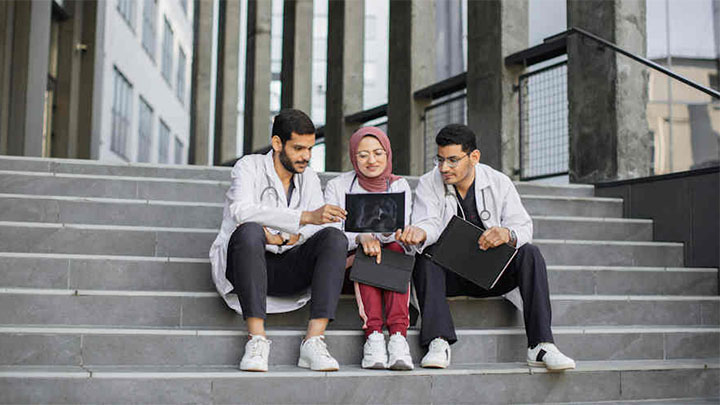
The Making a Difference Awards: Medics in primary schools
Sylvia Osahan was highly commended for ‘outstanding contribution to widening participation’ thanks to her involvement in the Medics in Primary Schools (MiPS) society.
Read the blog : The Making a Difference Awards: Medics in primary schools.

